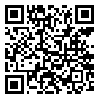BibTeX | RIS | EndNote | Medlars | ProCite | Reference Manager | RefWorks
Send citation to:
URL: http://hakim.tums.ac.ir/article-1-1039-en.html

 , Forouzan A
, Forouzan A 
 , Baradaran Eftekhari M *
, Baradaran Eftekhari M * 
 1, Malek Afzali H
1, Malek Afzali H 
 , Djalalinia S
, Djalalinia S 
 , Paikari N
, Paikari N 
 , Falahat K
, Falahat K 
 , Vameghi M
, Vameghi M 
 , Mirabzadeh A
, Mirabzadeh A 

Dejman M1 (MD, PhD), Forouzan A1 (MD, PhD), Baradaran Eftekhari M2 * (MD, MPH), Malek Afzali H3 (MD, PhD), Djalalinia S4 (MSc), Paikari N4 (MSc), Falahat K5 (MSc), Vameghi M 1 (MD), MirabzadehA6 (MD, PhD)
1 Department of Social Welfare, Social Determinants of Health Research Center,
Welfare and Rehabilitation University of Medical Sciences, Tehran, Iran
2 Undersecretary for Research and Technology, Ministry of Health and Medical Education, Social Determinants of Health Research Center, Welfare and Rehabilitation University of Medical Sciences, Tehran, Iran
3 Department of Public Health, School of Public Health, Tehran University of Medical Sciences, Tehran, Iran
4 Undersecretary for Research and Technology, Ministry of Health and Medical Education Metabolism and Endocrinology Research Center, Tehran University of Medical Sciences, Tehran, Iran
5 Undersecretary for Research and Technology, Ministry of Health and Medical Education, Tehran, Iran
6 Department of Social Determinants of Health, Social Determinants of Health Research Center,
Welfare and Rehabilitation University of Medical Sciences, Tehran, Iran
Received: 31 Jul 2011, Accepted: 22 Jul 2012
Abstract
Introduction: Nowadays, the development of participatory approaches with emphasis on community empowerment is recognized as an important tool in health promotion. The present study was conducted to assess the strengths, weaknesses, challenges and lessons learned from participatory community-based programs in the Islamic Republic of Iran.
Methods: In this qualitative study, thirteen community-based participatory programs related to health have been assessed in leadership, community participation/other stakeholders and capacity building themes.
Results: In this study, the main strength of leadership was volunteers` motivation in service delivery and community resource mobilization. The weak points were lack of community participation in decision-making process in national level, lack of regular monitoring and evaluation programs, and lack of appropriate policymakers` supports. In participation axes, the partnership of women was as the strength and lack of male participation and weakness of team working were as the challenges of the programs. Moreover, the participatory process of community empowerment was important as well as the other strengths in many programs and lack of appropriate update was the weak point.
Conclusion: Capacity building of community, NGOs and policymakers are important in cooperation mechanisms, partnership, team working and resource mobilization fields in development of participatory community-based programs.
Key words: e mpowerment, participatory community-based programs, leadership
Please cite this article as follows:
Dejman M, Forouzan A, Baradaran Eftekhari M, Malek Afzali H, Djalalinia S, et al. Community-based Participatory Programs related to Health in Islamic Republic of Iran: Strengths, Challenges and Lessons learnt. Hakim Research Journal 2012 15(3): 185- 191.
* Corresponding Author: Azadi Avenue, opposite to Avesta Park, Undersecretary for Research and Technology. Tel: +98- 21- 64892607, Fax: +98- 21- 66582540, E-mail: eftekharimonir@yahoo.com
Received: 2012/11/28 | Published: 2012/10/15
| Rights and permissions | |
 |
This work is licensed under a Creative Commons Attribution-NonCommercial 4.0 International License. |



